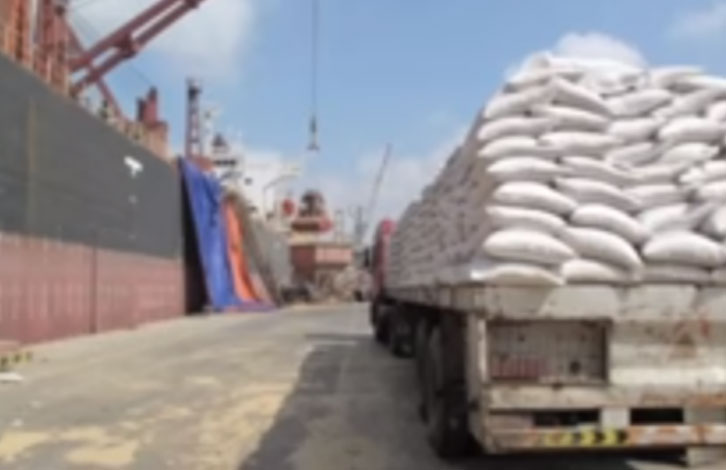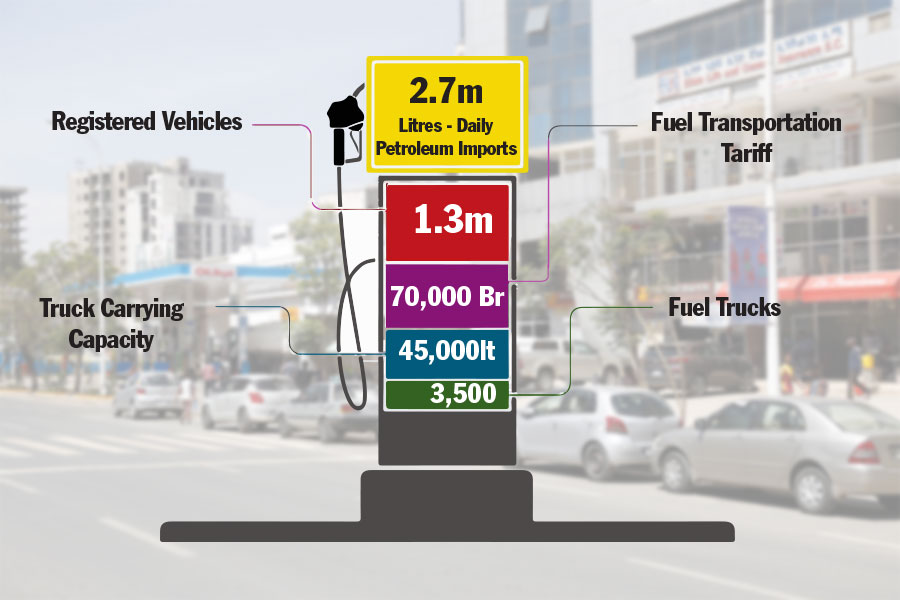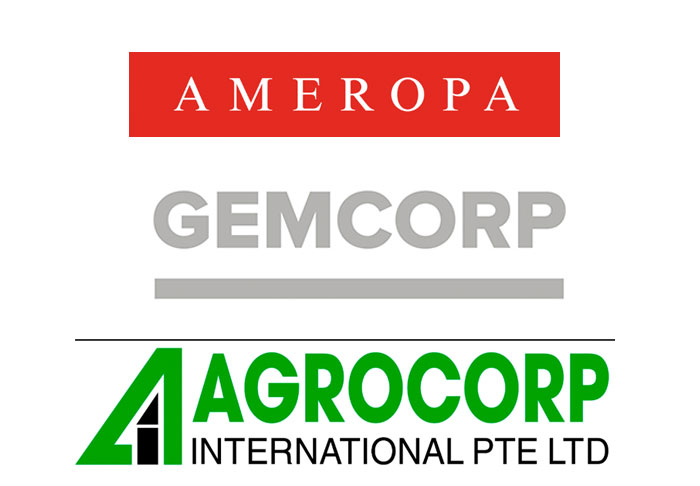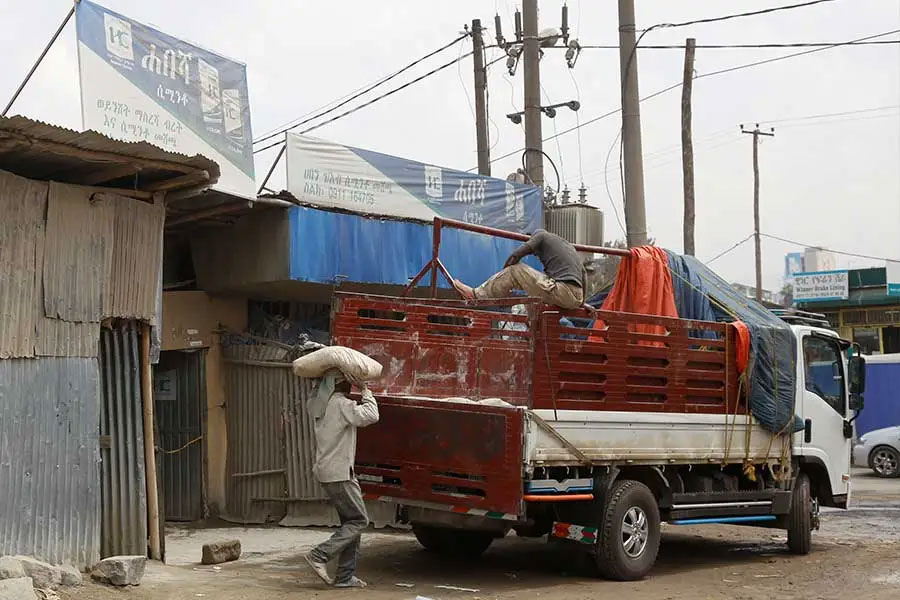
Apr 20 , 2019
By NOEL MINWAGAW ( FORTUNE STAFF WRITERS )
 Ethiopia is procuring an additional 400,000tn of milling wheat to stabilise the local market for an estimated 2.8 billion Br.
Ethiopia is procuring an additional 400,000tn of milling wheat to stabilise the local market for an estimated 2.8 billion Br. Ethiopia is procuring an additional 400,000tn of milling wheat to stabilise the local market for an estimated 2.8 billion Br.
Ten international companies are vying to supply the wheat through a tender opened last Friday, April 19, 2019, at the premises of the Public Procurement & Property Disposal Service on King George VI Avenue in Sidist Kilo.
Bids of four lots of equal volume attracted the interest of 56 companies, though only a fifth submitted financial offers. The UK-based Gemcorp, established in 2014 and with a presence in Africa, Eastern Europe, the Middle East and Latin America, made the lowest bid for all of the lots.
Gemcorp made the lowest offer of 249.34 dollars, 248.34 dollars, 246.34 dollars and 244.34 dollars a tonne for the four lots, reflecting price variations of freight costs and other parameters. This brought the aggregate final bid of Gemcorp to nearly 99 million dollars.
The runner up for the first lot was Bunge SA, an American agribusiness and food company, soybean exporter, food processor and trader of grains and fertilisers.
The Dubai-based Hakan Agro, established in 2007 and specialising in supply chain management of agricultural commodities, placed the second lowest offer for two lots; and Ameropa AG, a Swiss company, founded in 1948 and specialising in agri-business, production, logistics, marketing and distribution, came second on the third lot.
“The winners of each of the lots will be announced after the financial evaluation is concluded,” said Gojjam Tadele, a senior communications expert of the Service.
The ongoing tender for the supply of wheat is the fifth this fiscal year, all of which have been used to stabilise the market.
Inflation of food items was 11.4pc last month, and this was a result of the increase in the prices of teff, rice, fruits and vegetables. Following the depressed supply of flour, bakeries such as Shoa have begun selling bread in the market at their desired price, shunning the government’s subsidised wheat system.
Recently, the government awarded Wifag Mabrouk General Trading, a Dubai-based company established in 2012, to supply 400,000tn of wheat. Wifag Mabrouk won the deal by offering the lowest bid of 108 million dollars, 11 million dollars lower than the next lowest offer.
The sixth tender for the supply of 600,000tn of wheat will be opened on April 29, 2019. It will be used to support people affected by drought and internal displacement. The Service floated the tender on behalf of the National Disaster Risk Management Commission, the government body responsible for providing support to those affected by human-made or natural disasters.
The nation produced 4.6 million tonnes of wheat in the last fiscal year while importing another 1.7 million tonnes to meet demand.
Although such purchases are not ideal, the country has no other option to meet the demand but to import from abroad, according to Wassie Berhanu (PhD), an expert in agricultural economics.
“When production is low and demand is high,” said Wassie, “the government has to take this and other market stabilisation measures to protect consumers.”
The recent bid was opened a week after the arrest of the top level executives of the Service suspected of corruption related to 400,000tn of wheat that was awarded to Promising International. Yigezu Daba, former director general of the Service; Solomon Betre, former procurement process owner at the Service; and Jonse Gedefu, former deputy director of the Service, are among 10 suspects who were arrested.
PUBLISHED ON
Apr 20,2019 [ VOL
20 , NO
990]

Fortune News | Feb 02,2019

Fortune News | Feb 12,2022

Radar | Oct 02,2023

Fortune News | May 04,2019

Commentaries | Aug 12,2023

Fortune News | Oct 31,2020

Fortune News | Aug 27,2022

Radar | Sep 21,2019

Fortune News | Nov 03,2024

Commentaries | Jul 08,2023

Dec 22 , 2024 . By TIZITA SHEWAFERAW
Charged with transforming colossal state-owned enterprises into modern and competitiv...

Aug 18 , 2024 . By AKSAH ITALO
Although predictable Yonas Zerihun's job in the ride-hailing service is not immune to...

Jul 28 , 2024 . By TIZITA SHEWAFERAW
Unhabitual, perhaps too many, Samuel Gebreyohannes, 38, used to occasionally enjoy a couple of beers at breakfast. However, he recently swit...

Jul 13 , 2024 . By AKSAH ITALO
Investors who rely on tractors, trucks, and field vehicles for commuting, transporting commodities, and f...

Jun 28 , 2025
Meseret Damtie, the assertive auditor general, has never been shy about naming names...

Jun 21 , 2025
A well-worn adage says, “Budget is not destiny, but it is direction.” Examining t...

Jun 14 , 2025
Yet again, the Horn of Africa is bracing for trouble. A region already frayed by wars...

Jun 7 , 2025
Few promises shine brighter in Addis Abeba than the pledge of a roof for every family...